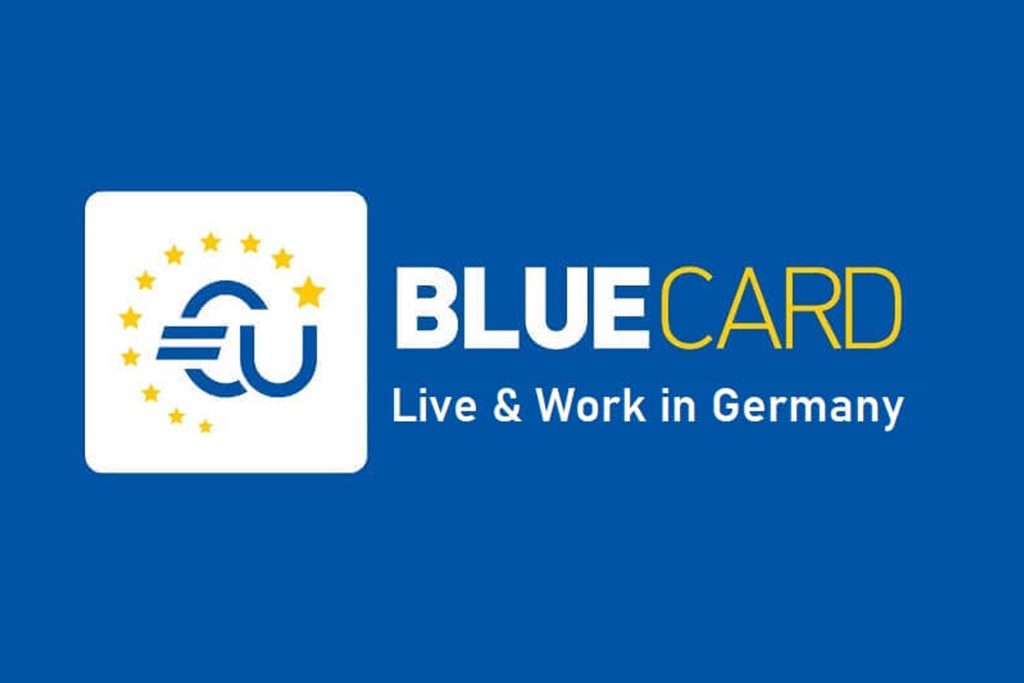If you’re a skilled worker dreaming of living and working in Europe, the EU Blue Card might just be your golden ticket. With talent shortages across tech, healthcare, engineering, and finance, European countries are offering Blue Card jobs to attract professionals from non-EU nations. This post gives you a complete breakdown of what the EU Blue Card is, how it works, who qualifies, and which countries are offering the best visa routes in 2025.
🌍 What Is the EU Blue Card?
The EU Blue Card is a work and residence permit for highly qualified non-EU nationals. It allows you to live and work in an EU member state, and even bring your family along.
📌 Tap to Reveal our offers
Sponsorship Visa Recruitment Agencies, How to Apply for Visa, USA Work Visa, Apply for Australian Visa, UK Shortage Occupation List, Migrate to Europe, Canadian Immigration, Job with Work Permit, Jobs Abroad with Support, Top Paying Migration Countries, Permanent Residency Abroad, Study and Work in UK, Tech Sponsorship Jobs, Jobs for Foreigners, High Paying Jobs in Canada, Immigration Lawyer, Sponsor Me for Work Visa, New Zealand Migration, Best Countries for Migration, Canadian PR Process
✅ Key benefits:
- Fast-tracked residence and work permit
- High salary thresholds and job security
- Easier pathway to permanent residency
- Family reunification included
- Mobility within the EU after 18 months
🧠 High CPC Keywords Integrated: EU Blue Card jobs, skilled worker visa Europe, work abroad in Europe, EU Blue Card countries, best jobs in Europe for foreigners
✈️ Who Can Apply for a Blue Card?
To qualify for an EU Blue Card, you typically need:
- A university degree or equivalent qualification
- A job offer in an EU country (minimum 6–12 months contract)
- A salary threshold set by the specific country
- Proof of health insurance
🔍 Note: Each country has its own salary requirement (e.g., Germany: €45,300/year in 2025 for most professions, €39,682 for shortage occupations).
🗺️ Best European Countries for Blue Card Jobs (2025)
Below are the top EU countries offering Blue Card opportunities and the most in-demand roles.
🇩🇪 Germany – The Most Popular Blue Card Country
In-demand jobs:
- IT developers
- Engineers
- Nurses and doctors
- Researchers
- Data analysts
💡 Salary threshold: ~€45,300 (lower for shortage occupations)
🔗 Apply via Germany’s Blue Card Portal
In-demand jobs:
- Healthcare workers
- Architects
- University professors
- Digital consultants
💡 Salary threshold: ~€53,836
🇳🇱 Netherlands – Fast Processing and English-Speaking Jobs
In-demand jobs:
- Tech professionals
- Scientists
- Fintech roles
- Business analysts
💡 Salary threshold: ~€60,000/year
🔗 Dutch Immigration Site – IND
🇸🇪 Sweden – New Blue Card System Introduced
In-demand jobs:
- Civil engineers
- IT consultants
- Medical specialists
- Environmental experts
💡 Salary threshold: ~SEK 53,200/month
🔗 Swedish Migration Agency – Blue Card
🇵🇱 Poland – Rising Demand for Skilled Workers
In-demand jobs:
- Software developers
- Mechanics
- Engineers
- Welders
- Technicians
💡 Salary threshold: Moderate; depends on region/sector
🛠️ Step-by-Step: How to Get a Blue Card Job in Europe
1. Update Your Resume for EU Standards
- Include language skills
- Add professional certifications
- Keep format clean and concise (Europass CV format is widely accepted)
2. Search for Blue Card Jobs on Trusted Portals
Use job filters like “EU Blue Card”, “Visa Sponsorship”, or “International Applicants Welcome.”
3. Apply with a Tailored Cover Letter
- Express willingness to relocate
- Mention your eligibility for Blue Card
- Focus on language skills and adaptability
4. Prepare Documents Early
- University degree (translated + notarized)
- Passport copy
- Job offer/contract
- Health insurance
- Proof of salary (if already working in EU)
5. Apply for Blue Card After Job Offer
Your employer will assist in the process, but in most countries, you’ll apply through a national immigration portal or embassy.
🔐 Advantages of the EU Blue Card Over Regular Work Visas
| Feature | Blue Card | Regular Work Visa |
|---|---|---|
| Fast-track PR | ✅ Yes | ❌ Usually no |
| Family reunification | ✅ Easier | ❌ More paperwork |
| EU-wide mobility | ✅ After 18 months | ❌ Country-specific |
| Job loss buffer | ✅ 3 months to find new job | ❌ Shorter grace period |
| Salary-based | ✅ High salary threshold | ❌ May vary per case |
🧳 Bringing Your Family With You
The Blue Card lets you bring your spouse and children, often with fewer restrictions. In most countries:
- Spouses can work without needing a separate permit
- Children can attend public schools
- Family reunification is processed quickly
🤖 AI Jobs and Blue Card Opportunities
AI, machine learning, and data science are among the highest-paying fields eligible for the Blue Card. Tech workers can expect easier approval if:
- They work in a shortage occupation
- Their employer is an accredited EU company
- They meet the salary requirement
🔍 High CPC Keywords: AI jobs in Europe, machine learning visa jobs, Blue Card for tech workers, data scientist Europe
📌 FAQs About the EU Blue Card
Q1. Can I apply for a Blue Card without a degree?
Generally no. A degree or equivalent qualification is required, though some countries accept experience in place of a degree.
Q2. Do I need to know the local language?
Not always. Tech and research jobs in Germany, Netherlands, and Sweden often use English. Healthcare roles may require language tests.
Q3. How long does it take to get the Blue Card?
Between 1–3 months after submitting all documents and getting a job offer.
Q4. Can I move to another EU country with a Blue Card?
Yes—after 18 months, you can move and work in another EU Blue Card country with minimal paperwork.
Q5. How long is the Blue Card valid?
Usually 1–4 years, renewable. After ~33 months (or 21 months if you meet language criteria), you can apply for permanent residency.
🔑 Key Takeaways
- The EU Blue Card is one of the best visa routes for skilled workers looking to relocate.
- Countries like Germany, France, the Netherlands, and Sweden are actively hiring.
- Salary threshold, job offer, and qualifications are key requirements.
- Use trusted portals like EURES and LinkedIn to find real job offers.
- Family reunification and EU-wide mobility make it a life-changing opportunity.
📝 Conclusion
The EU Blue Card opens doors not only to jobs but to a whole new lifestyle in Europe. If you’re qualified and driven, this is your moment to shine on the international stage. Don’t wait for the perfect opportunity—start applying today, polish your resume, and be prepared to take your career global.
The future is bright, and it might just be European.
📌 Disclaimer
This post is for informational purposes only. Visa rules change frequently. Always confirm requirements with official immigration portals or embassy sites before making decisions. For more information on policies, please refer to our Privacy Policy, Disclaimer, and Terms of Use.
Trending:
Legal Advice Online, Forex Trading Platforms, Cybersecurity Solutions, Remote Job Boards, Payday Loans Online, Mobile App Development, Voice Search SEO, CRM Software, Online Payroll Services, Custom Software Solutions



